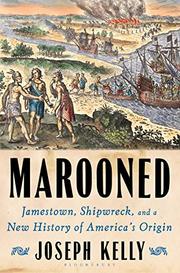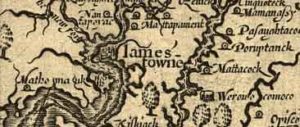The Brothers Mankiewicz: Hope, Heartbreak, and Hollywood Classics by Sydney Ladensohn Stern
February 27, 2021 by David
Filed under Non-Fiction, WritersCast
 The Brothers Mankiewicz: Hope, Heartbreak, and Hollywood Classics – Sydney Ladensohn Stern- 9781617032677 – University Press of Mississippi – 480 pages – 88 b&w illustrations – October 2019 – Hardcover – $35 – ebook version available at lower prices
The Brothers Mankiewicz: Hope, Heartbreak, and Hollywood Classics – Sydney Ladensohn Stern- 9781617032677 – University Press of Mississippi – 480 pages – 88 b&w illustrations – October 2019 – Hardcover – $35 – ebook version available at lower prices
There are any number of characters and influencers in the history of modern American film-making, but among the many greats who contributed to its evolution into the dominant form of our popular culture, the Mankiewicz brothers stand out. Between them, they played critical roles in an incredible array of films that comprise our film canon today. Herman (1897–1953) and Joe (1909–1993) either wrote, produced, or directed (sometimes both or all) more than 150 films, from late era silents to almost modern era big budget productions.
Herman is credited with writing the screenplay for Citizen Kane with Orson Welles (though the amount of work done by each of them has long been disputed) and shared the picture’s only Academy Award. Joe won four Oscars altogether, including two for writing and directing All About Eve, which also was awarded Best Picture in 1950.
Both the older Herman and the much younger Joe started as writers and then became successful as producers and in Joe’s case as a director as well. They came to Hollywood as upwardly mobile children of immigrants, brilliant intellectually and wildly witty, and feeling extremely ambiguous throughout their careers about the value and importance of their work in film – concerned it seems, to not be recognized as serious artists, as their novelist and playwright friends had been. The conflict between art and popular culture defined their lives and caused them each great suffering.
Herman was an early member of the renowned Algonquin Round Table group of wits, and in his unhappiness and self destructiveness, frequently lost all his money gambling. He alienated all the major film studios, and was dead by the age of 55. At the same time that Herman was ruining his career, Joe found significant success as writer, producer, and director, although he was almost addicted to deeply felt romances with the stars he worked with, including Judy Garland, and Joan Crawford, causing terrible suffering to his wife and family.
Biographer Sydney Ladensohn Stern spent ten years in researching and writing this comprehensive portrait of twentieth century American film through the lens of two of its most important and compelling figures. She’s written a thorough and highly readable narrative that gives us a chance to understand the complexities of her characters, and for anyone with an interest in modern film history, this book will be irresistible. The Mankiewicz brothers are among the titans upon which the movie business was built – their writing helped to define the language we see now as emblematic of an entire era in American history. This was a very fun book for me to read and I very much enjoyed talking to Sydney about her book. I think you will enjoy hearing our conversation and you should read this book (now available as an audiobook too).
“one of the best of the recent biographies of screenwriters … One thing I love about her book are the footnotes that trace the lineage of some of the great Mank stories (“The white wine came up with the fish” and “Imagine that, the whole world wired to Harry Cohn’s ass”…) ” –Tom Stempel
Sydney Ladensohn Stern worked as a reporter for Fortune and Money magazines and as an editor and award-winning columnist for the Scarsdale Inquirer before she started freelance writing. Her column, “Suburban Exposure,” covered politics and contemporary culture as well as her family and community, but she discontinued it after her sons left home and stopped providing her with material. She has freelanced for numerous publications including the New York Times. Her first biography is Gloria Steinem: Her Passions, Politics, and Mystique.
Author website here.
Buy the book here.
Podcast: Play in new window | Download
Joseph Kelly: Marooned: Jamestown, Shipwreck, and a New History of America’s Origin
March 18, 2019 by David
Filed under Non-Fiction, WritersCast
 Marooned: Jamestown, Shipwreck, and a New History of America’s Origin – Jospeh Kelly – 978-1-63286-777-3 – Bloomsbury – Hardcover – 512 pages – $32 – October 30, 2018 – ebook versions available at lower prices
Marooned: Jamestown, Shipwreck, and a New History of America’s Origin – Jospeh Kelly – 978-1-63286-777-3 – Bloomsbury – Hardcover – 512 pages – $32 – October 30, 2018 – ebook versions available at lower prices
I really enjoy reading books about American history, and especially lately, books that explore some of the stories and moments that are foundational to the history of this continent, but are not well known or well told. And I’ve also become extremely concerned about gaining a better and more nuanced understanding of those stories that have been told solely from the perspective of the European (white) perspective that dominates our historical narrative, and thus our understanding of ourselves.
Joseph Kelly’s Marooned is just such a book, and I was immediately drawn to it. This is an insightful re-examination of the 1607 Jamestown settlement, the story of which really should replace the Mayflower colony’s position as America’s founding Puritan-centric myth.
In fact, the multiple stories of Europeans’ initial contact with the native peoples who fully inhabited North, Central and South America all require a complete re-examination, and I have been reading several books that provide insight into the way these continents were conquered by the marauding Europeans and their violence and diseases.
Marooned is about much more than just the Jamestown settlement. The book begins by recounting the settlement’s really awful circumstances. Most of those early settlers died of disease or starvation or deserted to the local tribes for protection. The workings of the Virginia Company that was set up to colonize and exploit the supposedly “virgin” New World are fascinating and in some ways depressingly familiar to our modern large scale version of unrestrained capitalism.
The traditional blame for the miseries of Jamestown’s early years goes to those leaders who failed to manage their “lazy” colonists, as opposed to those who were ready, willing and able to literally whip them into shape. But Kelly makes it clear that because it was the aristocrats who wrote the documents on which our traditional history relies, the real story may be, likely is, significantly different. Kelly finds ample evidence that the colonists who were cast into the wilderness, “marooned” from home and trying to survive, experienced a far different reality than their leaders. Many of them had a nascent understanding that Britain’s rigid class structure would not work in this different environment, and that their actual survival required a far more equitable system of governance. In fact, there were many uprisings and expressions of rebellion, all of which were put down, although a limited electoral oligarchy emerged during the course of the 17th century in the Virginia colony.
There are many side trips and journeys throughout this engaging narrative. The story of the castaways from one of the resupply ships on Bermuda, truly a story of being marooned, is striking. Nine ships en route to re-supply Jamestown in 1609 were hit hard by a hurricane, a storm of extreme high winds and waves, and one ship, the Sea Adventure, with some of the key leaders of the expedition on board, was wrecked on the shores of the Bermudas. The crew reached one of the islands in safety, and almost a year later, after building two boats by hand, they sailed again for Jamestown, and somewhat surprisingly, were able to reach their destination not long after departing from Bermuda. This story circulated widely in London, and may well have inspired Shakespeare’s great play, The Tempest. The timing is certainly right for that to be the case.
Kelly contributes a significantly better understanding of the Powhatan Confederacy’s formation and politics before and during the settlement period, as well as the fluidity between the cultures of the native peoples and the colonists. Marooned is not just the story of the Europeans and their conquest, but successfully weaves together the the narrative of the struggles of native peoples of that time and place in their powerful efforts to survive the arrival of the brutal land grabbing English settlers and the lives of the colonists at the lower ends of the social strata, whose stories we rarely, if ever, get to know.
It is a pleasure to discover such a good writer and story teller as Joe Kelly is. In this book, he truly brings history alive through its people, and with a narrative built on a solid grounding of research and a deeper understanding of the complexities of perspective than many other historians.
Joseph Kelly holds a Ph.D. in English from the University of Texas, Austin, and is a professor of literature and director of Irish and Irish American Studies at the College of Charleston. He is the author of America’s Longest Siege: Charleston, Slavery, and the Slow March Toward Civil War, and the editor of the Seagull Reader series. He lives in Charleston, South Carolina. Joe’s blog can be found here.

Podcast: Play in new window | Download

